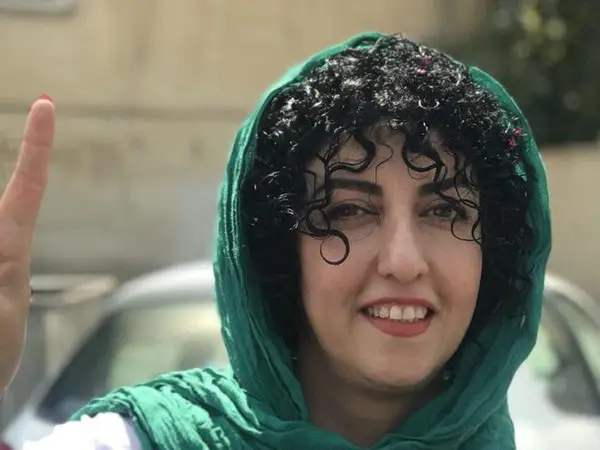Human Rights Watch says Iran is committed to crush any grassroots effort to protect human rights and urged world powers to press Tehran to stop the crackdown.
The rights group said on Friday that the recent heavy sentence meted out against prominent political prisoner Narges Mohammadi shows that Iran’s revolutionary courts are criminalizing human rights activism.
In a five-minute trial on January 15, Branch 26 of Tehran’s revolutionary court sentenced rights defender Mohammadi to eight years in jail and 70 lashes on charges not announced or explained by authorities.
According to her husband, Taghi Rahmani, the summary trial was held behind closed doors and that she was denied access to a lawyer.
“Iranian authorities’ cruel detention and prosecution of Narges Mohmmadi only one year after she was released from an earlier prison term and then piling on more unfair prison sentences are clearly intended to crush her into silence at all costs,” said Tara Sepehri-Far, senior Iran researcher at Human Rights Watch.
She also called on authorities to free the rights activist, saying, “The authorities should immediately and unconditionally release Narges Mohammadi, who has already unjustly been imprisoned for years.”
“People like Narges Mohammadi are the ones who work to bring Iranian civil society together,” Sepehri-Far stressed, noting that “Governments that are engaging diplomatically with Iran should make sure to press the government to stop its relentless crackdown against human rights defenders.”
In a letter from the notorious Gharchak (Qarchak) Prison, obtained by Iran International, Mohammadi said the court stated her nomination for the Nobel Peace Prize as evidence of her criminality.
"What reveals the hostility and baselessness of the charges [brought against me] and the legal procedure leading to the ruling is that I have been found guilty for being nominated by the Norwegian Amnesty for the Nobel Peace Prize," Mohammadi, a lawyer by profession, wrote from prison.
In March 2021, the chairman of Amnesty International in Norway announced that two members of the Norwegian parliament had nominated the Iranian human rights activist for the Nobel Peace Prize, backed by the local Amnesty branch.
Moreover, in a joint statement by German Federal Government Commissioner for Human Rights Luise Amtsberg and French Ambassador for Human Rights Delphine Borione on Thursday, denounced Mohammadi’s conviction as unjust and expressed extreme concern that her detention in Gharchak Prison may further worsen her health, referring to her serious neurological disease that causes muscular paralysis.
“It was with dismay that we learned that Narges Mohammadi has been sentenced to eight years in prison and 70 lashes. Narges Mohammadi’s peaceful campaign for women’s rights and the improvement of the human rights situation in Iran, in particular for the abolition of the death penalty, is not a criminal offence,” read the statement.
“We call on Iran’s political leaders to comply with the country’s obligations under international law and to release Narges Mohammadi immediately”, they said.
Mohammadi was arrested in mid-November at the death anniversary of a citizen, Ebrahim Ketabdar, who was shot dead by security forces during the November 2019 protests.
She is the vice-president of the Defenders of Human Rights Association, the Chair of the executive board of the Peace Council of Iran, and a member of "Step-by-Step Abolition of Execution" campaign.
Mohammadi has been to jail several times over the past two decades. She was freed from Evin Prison in September 2020 after serving more than five years when she had no contact with her husband and children for long periods of time.
Iran executed 299 individuals in 2021, including four juvenile offenders -- a 26-percent increase compared with 2020. Courts issued 85 death sentences until December 20.
Persecution of human rights and political activists and execution have increased since hardliner president Ebrahim Raisi took office last August.
